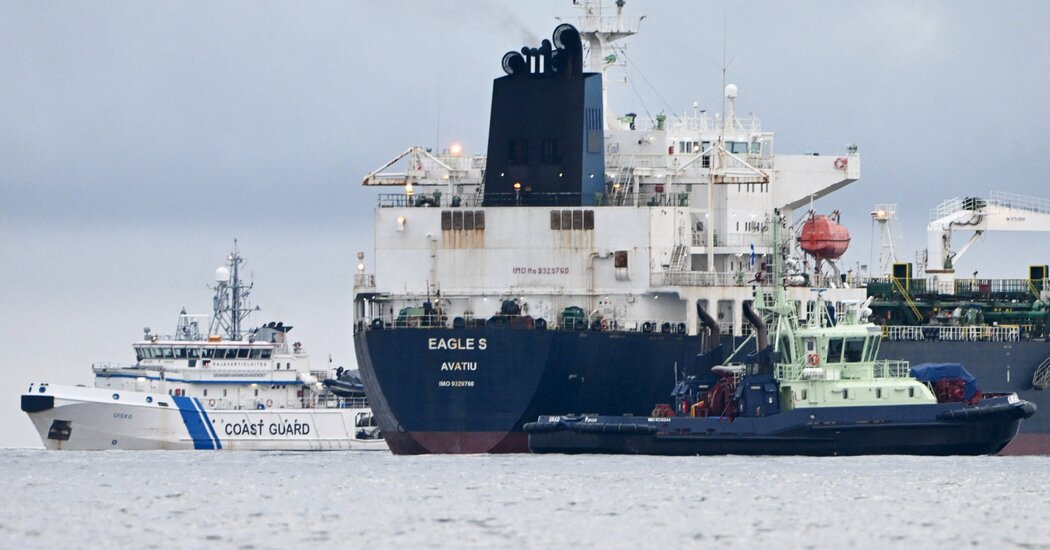
A court in Finland dismissed a case on Friday against the crew of an oil tanker accused of cutting undersea cables in the Baltic Sea last year, saying that the country did not have jurisdiction to prosecute the sailors.
A district court judge in Helsinki said that the damage was caused by negligence in maintaining the anchor, placing the incident under the jurisdiction of the United Nations Convention on the Law of the Sea. That means that if the Finnish authorities wanted to pursue a criminal case, they would have to do so in the country where the ship was registered or in the defendants’ native countries. The ship, the Eagle S, is registered in the Cook Islands, and the crew are from Georgia and India.
The Finnish authorities did not respond to a request for comment.
In August, Finland charged the crew of a ship that was believed to be part of Russia’s “shadow fleet,” tankers that covertly transport crude oil in a system Russia uses to evade Western sanctions. The ships are also thought to carry out acts of sabotage on European infrastructure.
The Finnish authorities seized the Eagle S last year, saying that its anchor had been dragged on the seabed for more than 50 miles and cut five submarine cables, including a power cable that runs between Estonia and Finland. The damage caused little disruption, but repairs cost at least 60 million euros, or more than $70 million, prosecutors said.
Finnish and Estonian officials later said that the cables were most likely cut in an act of sabotage. At the time, NATO and the European Union commended Finland for working against acts aimed at destabilizing or antagonizing countries that support Ukraine.
In March, the authorities released the ship and escorted it out of Finnish waters. But the captain and first officer, who are both from Georgia, as well as the second officer, an Indian national, were barred from leaving Finland. They were charged with “aggravated criminal mischief and aggravated interference with communications.”
The crew members denied the charges, and the defense had argued from the beginning that the cuts to the cables occurred outside of Finnish waters.
Last month, the sailors returned home after the court found no further reason to bar them from leaving the country, Herman Ljungberg, a lawyer for the shipping company, said.
Although no government has said publicly who was responsible for the incursions, many countries have been on alert about potential Russian provocations. The Kremlin has denied involvement.
In recent days, the French authorities boarded an oil tanker heading from Russia to India, which the government said was part of Moscow’s shadow fleet, and arrested the captain, a Chinese national. On Thursday, he was charged him with refusing to comply with orders in a case that will be heard next February.
Prime Minister Emmanuel Macron of France said the operation had yielded “concrete results” in efforts to choke the Kremlin’s revenue from the shadow fleet, which he said financed up to 40 percent of Russia’s war in Ukraine.
“You kill the business model by detaining for days or weeks these vessels, forcing them to organize themselves differently,” he said during the meeting of European leaders in Denmark.



